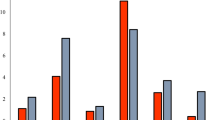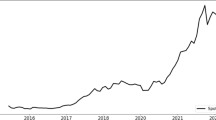Abstract
This paper examines the impacts of the proposed carbon-based border tax adjustments (BTAs) on China’s trade, based on a multi-sector dynamic computable general equilibrium model including 7 energy sectors and 30 non-energy sectors and running up to the year 2030. Distinct from previous single China country models, our model disaggregates foreign accounts of China into four regions, including USA and the EU, to enable to examine the effects of re-routing trade flows. The results suggest that BTAs would have a negative impact on China’s trade. BTAs will directly decrease China’s exports, whereas Chinese exporting enterprises will accordingly modify their strategies. Moreover, BTAs will affect China’s total imports and sectoral import in an indirect but more intricate way. Furthermore, the simulation results for coping policies indicate that enhancing China’s power in world price determination and improving energy technology efficiency will effectively help mitigate the damages caused by BTAs.


















Similar content being viewed by others
Notes
This raises the issue of effectiveness of the US proposed carbon tariffs because of re-routing trade flows to deliver the covered products from countries that are not subject to such carbon tariffs (Zhang 2010d, 2011, 2012). With Japan passing the comparability test and thus being exempted from an emissions allowance requirements (EAR) under the proposed US cap-and-trade regime, imposing an EAR on Chinese steel, but not on Japanese steel, could make Japanese steel more competitive in the US market than Chinese steel. That could lead Japanese steel makers to sell more steel to the United States and Japanese steel consumers to import more from China (Houser et al. 2008). In the end, this neither affects China nor protects US steel producers.
References
Almanac of China’s Finance and Banking Editorial Board (2009) Almanac of China’s finance and banking 2008. Almanac of China’s Finance and Banking Magazine Co. Ltd., Beijing
Armington PA (1969) A theory of demand for products distinguished by place of production. IMF Staff Papers 16(1):159–178
Assel H, Biermann F (2007) European emission trading and the international competitiveness of energy-intensive industries: a legal and political evaluation of possible supporting measures. Energy Policy 35:497–506
Asselt H, Brewer T (2010) Addressing competitiveness and leakage concerns in climate policy: an analysis of border adjustment measures in the US and the EU. Energy Policy 38(1):42–51
Bao Q, Tang L, Zhang ZX, Wang SY (2013) Impacts of border carbon adjustments on China’s sectoral emissions: simulations with a dynamic computable general equilibrium model. China Econ Rev 24(1):77–94
Dissou Y, Eyland T (2011) Carbon control policies, competitiveness, and border tax adjustments. Energy Econ 33(3):556–564
Dong Y, Whalley J (2011) Carbon motivated regional trade arrangements: analytics and simulations. Econ Model 28(6):2783–2792
Dong Y, Whalley J (2012) How large are the impact of carbon motivated border tax adjustments. Clim Change Econ 3(01):1250001. doi:10.1142/S2010007812500017
Fredrich K, David RH (2008) Energy and exports in China. China Econ Rev 19(4):649–658
General Administration of Customs of P.R. China (2009) China customs statistical yearbook 2008. China Customs Press, Beijing
Ghosh M, Luo D, Siddiqui MS, Zhu YF (2012) Border tax adjustments in the climate policy context: CO2 versus broad-based GHG emission targeting. Energy Econ 34(2):S154–S167
Gros D (2009) Global welfare implications of carbon border taxes. CESifo Working Paper No. 2790
Houser T, Bradley R, Childs B, Werksman J, Heilmayr R (2008) Leveling the carbon playing field: international competition and U.S. climate policy design. Peterson Institute for International Economics and World Resources Institute, Washington
Intergovernmental Panel on Climate Change (2006) IPCC guidelines for national greenhouse gas inventories. www.ipcc-nggip.iges.or.jp/public/2006gl/index.html
International Energy Agency (2010) Key world energy statistics. Paris
Johansen L (1960) A multi-sectoral study of economic growth. North-Holland, Amsterdam
Kuik O, Hofkes M (2010) Border adjustment for European emissions trading: competitiveness and carbon leakage. Energy Policy 38(4):1741–1748
Li A, Zhang A (2012) Will carbon motivated border tax adjustments function as a threat? Energy Policy 47(8):81–90
Liang Q, Fan Y, Wei Y (2007) Carbon taxation policy in China: how to protect energy- and trade-intensive sectors. J Policy Model 29:311–333
Lin B, Li A (2011) Impacts of carbon motivated border tax adjustments on competitiveness across regions in China. Energy 36(8):5111–51118
Majocchi A, Missaglia M (2002) Environmental taxes and border tax adjustment. Società Italiana Economisti Pubblici (SIEP) Working Paper No. 127
McFarland J, Reilly J, Herzog H (2004) Representing energy technologies in top-down economic models using bottom-up information. Energy Econ 26:685–707
McKibbin WJ, Wilcoxen PJ (2009) The economic and environmental effects of border tax adjustments for climate policy. Brookings Trade Forum 2009:1–23
Monjon S, Quirion P (2010) How to design a border adjustment for the European Union Emissions Trading System? Energy Policy 38(9):5199–5207
Monjon S, Quirion P (2011) A border adjustment for the EU ETS: reconciling WTO rules and capacity to tackle carbon leakage. Clim Policy 11(5):1212–1225
National Bureau of Statistics of P. R. China (2009a) China energy statistical yearbook 2008. China Statistics Press, Beijing
National Bureau of Statistics of P. R. China (2009b) China statistical yearbook 2008. China Statistics Press, Beijing
National Bureau of Statistics of P. R. China (2012) China statistical yearbook 2012. China Statistics Press, Beijing
Rivers N (2010) Impacts of climate policy on the competitiveness of Canadian industry: how big and how to mitigate. Energy Econ 32:1092–1104
Shi MJ, Li N, Zhou SL, Yuan YN, Ma GX (2010) Can China realize mitigation target toward 2020? J Resour Ecol 1(2):15–24
Shoven JB, Whalley J (1972) A general equilibrium calculation of the effects of differential taxation of income from capital in the U.S. J Public Econ 1(3–4):281–321
Stiglitz JE (2006) A new agenda for Global Warming. Econ Voice 3(7):3
Subcommittee on Energy and Air Quality of the U.S. House of Representatives (2008) Competitiveness concerns/engaging developing countries. Climate change legislation design white paper, Washington DC, January. http://energycommerce.house.gov/Climate_Change/White_Paper.competitiveness.013108.pdf
United Nations Framework Convention on Climate Change (UNFCCC) (2011) Establishment of an ad hoc working group on the Durban platform for enhanced action: proposal by the president. FCCC/CP/2011/L.10, Seventeenth session of the Conference of the Parties, Durban, 28 November–9 December
U.S. H. R. 2454 (2009) American Clean Energy and Security Act of 2009. H.R. 2454 in the 111th Congress, Washington
Veenendaal P, Manders T (2008) Border tax adjustment and the EU-ETS: a quantitative assessment. Central Planning Bureau (CPB) Document No. 171
Wang K, Wang C, Chen JN (2009) Analysis of the economic impact of different Chinese climate policy options based on a CGE model incorporating endogenous technological change. Energy Policy 37:2930–2940
Weber CL, Peters GP (2009) Climate change policy and international trade: policy considerations in the US. Energy Policy 37:432–440
Weitzel M, Hüble M, Peterson S (2012) Fair, optimal or detrimental? Environmental vs. strategic use of border carbon adjustment. Energy Econ 34(2):S198–S207
World Trade Organization (WTO) & United Nations Environment Programme (UNEP) (2009) Trade and climate change: WTO-UNEP Report, Geneva
Zhang ZX (1995) Integrated economy-energy-environment policy analysis: a case study for the People’s Republic of China. Report to the Netherlands National Research Programme on Global Air Pollution and Climate Change, Department of General Economics, University of Wageningen, The Netherlands
Zhang ZX (1998a) The economics of energy policy in China: implications for global climate change. New horizons in environmental economics series, Cheltenham, UK and Northampton. Edward Elgar, USA
Zhang ZX (1998b) Macroeconomic effects of CO2 emission limits: a computable general equilibrium analysis for China. J Policy Model 20(2):213–250
Zhang ZX (2009) Multilateral trade measures in a post-2012 climate change regime? What can be taken from the Montreal Protocol and the WTO? Energy Policy 37:5105–5112
Zhang ZX (2010a) Is it fair to treat China as a Christmas tree to hang everybody’s complaints? Putting its own energy saving into perspective. Energy Econ 32:S47–S56
Zhang ZX (2010b) The US proposed carbon tariffs and China’s responses. Energy Policy 38(5):2168–2170
Zhang ZX (2010c) China in the transition to a low-carbon economy. Energy Policy 38(11):6638–6653
Zhang ZX (2010d) The U.S. proposed carbon tariffs, WTO scrutiny and China’s responses. Int Econ Policy 7(2–3):203–225
Zhang ZX (2011) Energy and environmental policy in China: towards a low-carbon economy. New horizons in environmental economics series, Cheltenham, UK and Northampton. Edward Elgar, USA
Zhang ZX (2012) Competitiveness and leakage concerns and border carbon adjustments. Int Rev Environ Resour Econ 6(3):225–287
Zhang ZX, Baranzini A (2004) What do we know about carbon taxes? An inquiry into their impacts on competitiveness and distribution of income. Energy Policy 32(4):507–518
Acknowledgments
This study is supported by the National Natural Science Foundation of China under Grants No. 71203214, No. 71301006, No. 71373055 and No. 91224004. An earlier version of the study was presented at the 20th Annual European Association of Environmental and Resource Economists Conference, Toulouse, France, June 26–29, 2013. It has tremendously benefited from valuable comments and suggestions from two anonymous referees. That said, the views expressed here are those of the authors. The authors bear sole responsibility for any errors and omissions that may remain.
Author information
Authors and Affiliations
Corresponding author
About this article
Cite this article
Tang, L., Bao, Q., Zhang, Z. et al. Carbon-based border tax adjustments and China’s international trade: analysis based on a dynamic computable general equilibrium model. Environ Econ Policy Stud 17, 329–360 (2015). https://doi.org/10.1007/s10018-014-0100-3
Received:
Accepted:
Published:
Issue Date:
DOI: https://doi.org/10.1007/s10018-014-0100-3
Keywords
- Border carbon tax adjustments
- International trade
- Dynamic computable general equilibrium model
- Technological change
- China




